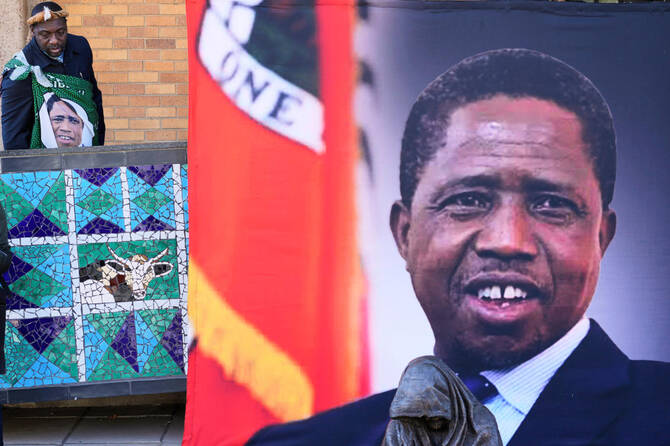
The planned repatriation and burial of former Zambian President Edgar Lungu has been suspended as a legal dispute continues in South Africa.
Lungu’s family has filed an appeal against a Pretoria High Court ruling that ordered his remains to be returned to Zambia for a state funeral.
Zambia’s Attorney General, Mulilo Kabesha, confirmed on Monday that the High Court in Pretoria has not yet set a date to hear the application for leave to appeal submitted electronically on August 8.
The appeal came just a day after the court instructed that Lungu’s body be repatriated to Lusaka for burial at Embassy Park, the official resting place for Zambian heads of state.
The court’s decision followed a two-month standoff between the Zambian government and Lungu’s family.
While authorities planned a state funeral to honour the late president, the family had intended a private ceremony in Johannesburg, citing Lungu’s alleged wish to avoid a funeral that might involve his political rival, President Hakainde Hichilema.
The family disputes the court’s conclusion that an agreement had been reached in June regarding repatriation.
They argue that the full context of those discussions was not adequately considered. Should the appeal be successful, the case would advance to the Supreme Court of Appeal of South Africa.
Lungu passed away in June in Johannesburg while receiving medical treatment. His death triggered national mourning in Zambia but also highlighted lingering tensions between the former president’s family and the state over funeral arrangements.
Observers say the dispute underscores the political rift between Lungu and Hichilema, who defeated him in the 2021 presidential election.
Attorney General Kabesha emphasized that the government remains open to dialogue with the family.
Until the appeal process is resolved, Lungu’s remains will remain in South Africa, leaving the nation waiting to pay its final respects.
The outcome of this legal contest is likely to have significant implications, not only for the handling of state funerals in Zambia but also for the broader relationship between political institutions and former leaders’ families.



